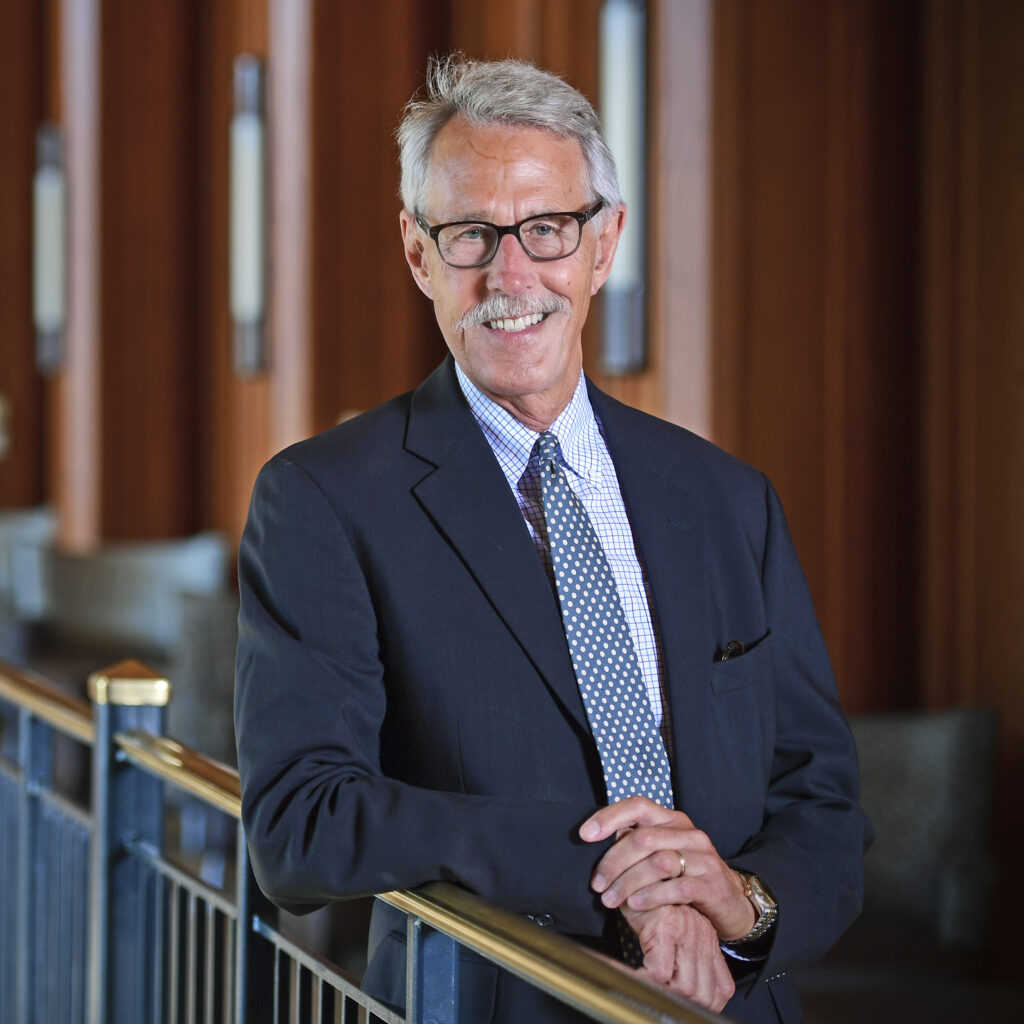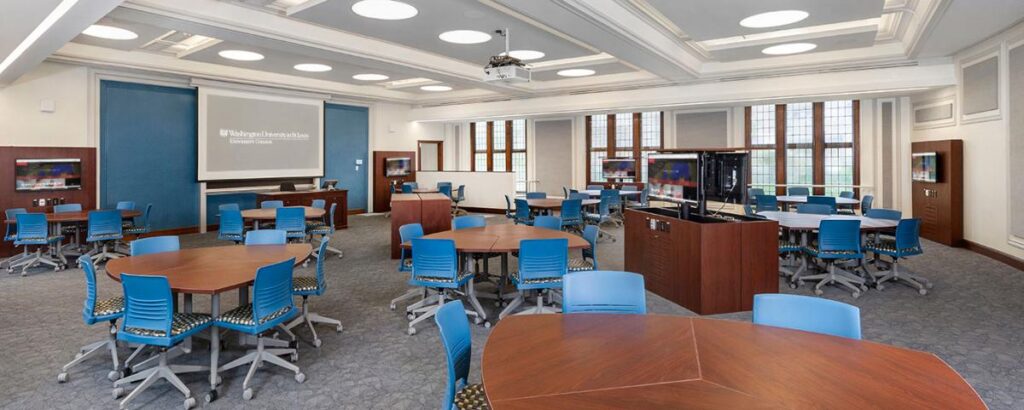As Mark Rollins prepares to step down as dean, he reflects on recent progress in serving adult learners at Washington University.
the School of Continuing & Professional Studies (formerly University College), the continuing education branch of Arts & Sciences, provides educational options for a large number of adult learners, many of whom are seeking degrees or credentials on a part-time basis. The adult learner population ranges in age from 20-80, and it includes a sizeable number of Washington University staff. In addition, the School of Continuing & Professional Studies (CAPS) provides classes for credit for traditional day-school students, as well as college credit and non-credit classes for many pre-college students.

Mark Rollins stepped into his role as Dean in 2016 with more than 30 years of teaching and leadership experience in Arts & Sciences, having served in positions including chair of performing arts, chair of philosophy, and faculty fellow in the Office of the Provost. But, according to Rollins, leading CAPS offered a distinctive set of challenges and opportunities.
In 2016, the unit faced a serious issue – for several years, enrollments had been declining by about 5% each year. Through a variety of methods, including improved data collection, new avenues of student support, new academic programming, and a strategic marketing effort, in three short years that trend has reversed. This year, CAPS anticipates an enrollment increase of 3-4%. “Enrollments are a measure of outreach,” Rollins says, “so that turnaround has been an important success story for us.”
Overcoming barriers
In order to overcome some of the barriers faced by adult learners, CAPS had to first identify critical moments of possible discouragement in its application, admission, and registrations processes. Early on his deanship, Rollins made a priority of improving CAPS’s data collection methods in order to systematically document existing issues in the student experience.
The data revealed that students face multiple, often unnecessary, challenges as they move through the system. For example, for students who perhaps have attended multiple institutions over multiple years, something as seemingly simple as gathering transcripts can prove a barrier to enrollment: Some universities won’t grant records to students with such things as years-old library fines. Then, after registering and beginning classes, adult students face additional obstacles as they juggle school work with ongoing career and family responsibilities.
In addressing these problems, Rollins has viewed CAPS students as “consumers of knowledge” who should be supported every step of the way in their academic pursuits to help them succeed. A new mentoring program provides an important and growing part of that vision. In the program, students partner with alumni who are available to answer questions and provide support. Just two years in, some 200 students – nearly 40% of the student body – have signed up.
New academic programs have also been developed with the needs of adult learners in mind. Continuing education students often seek specific skills required to pursue a new career or advance in a current position, such as geographic information systems or human resource management. However, while acknowledging the importance of educating students in specialized areas, CAPS has long prioritized exposing students to the liberal arts, true to its roots in Arts & Sciences. Combining these two educational goals, a new Bachelor of Science in Integrated Studies now gives students the option of earning degrees by combining certificates in two related areas of concentration. For many students, one certificate will be in professional studies, the other in the liberal arts. This sort of programming is part of Rollins’ long-range goal of defining more precisely the mission of CAPS as a division of Arts & Sciences, which he views as crucial to its success.

“From the beginning, we strived to clarify the identity of CAPS,” Rollins says. “I think that, because of the ways we have pursued our goals over the past three years, people now better understand why we should be committed to both the liberal arts and to the specialized skills our students seek and how there can be ways to honor those commitments without significant compromise.”
All of these developments were possible thanks to the efforts of a large number of advisors and staff. CAPS has recently revised the function of its traditional faculty council and created both an alumni advisory council and a dean’s advisory council. The members of these advisory committees have often noted a strength of CAPS. “All of our advisors and consultants have been struck by what a well-functioning unit CAPS is and by the effectiveness and commitment of our staff,” says Rollins.
Over the past several years, there has been an increase in philanthropic activity in support of CAPS. This includes very generous support from Jon and Carol Epstein, a distinguished alumna of CAPS, as well as a major grant from the Osher Foundation to benefit the Lifelong Learning Institute, which is sponsored by CAPS. Funding for student scholarships has increased substantially, through gifts from numerous individual donors and organizations, including the Washington University Woman’s Club. CAPS students now have access to more classes taught by full-time Arts & Sciences faculty than ever before.
Going forward
Following a year of leave, Rollins anticipates he will continue being involved at CAPS in some capacity. He sees opportunities for building partnerships across campus with Arts & Sciences, the professional schools, and with units like Human Resources. For example, the newly renamed Osher Lifelong Learning Institute could fruitfully collaborate with the Harvey A. Friedman Center for Aging and with Arts & Sciences full-time faculty in psychological and brain sciences and other departments engaged in research on the nature of learning. Rollins also sees opportunities for online education across CAPS’s degree offerings as a critically important next step in continuing education at Washington University.
“The recent developments in CAPS have come about through a lot of hard work from a lot of dedicated people,” Rollins says. “As a philosopher, I believe that we have a responsibility to share knowledge broadly and to use it to address the many social problem we confront. This is something I care deeply about. Further opening a Washington University education to the larger community has been a very gratifying experience for me.”